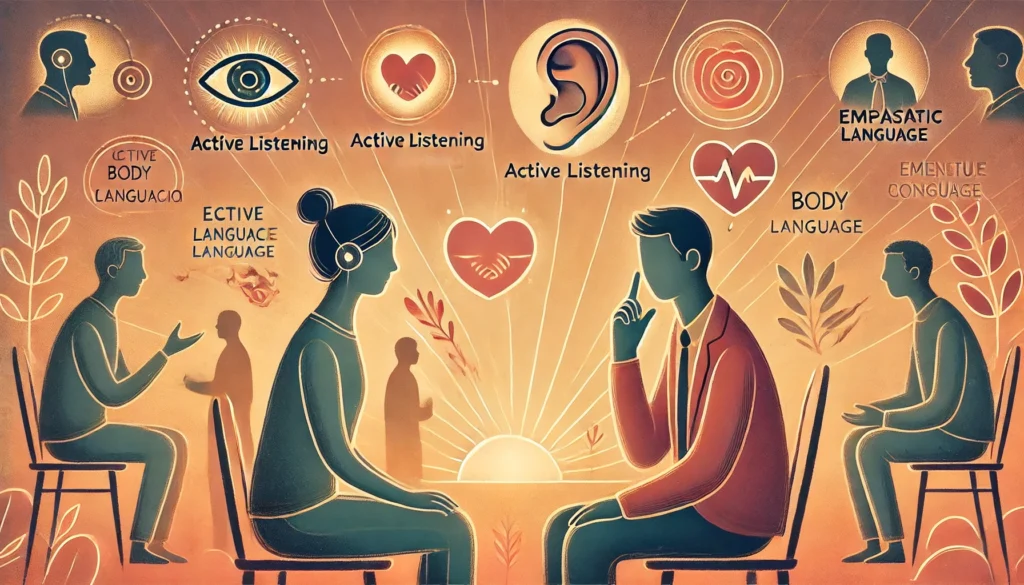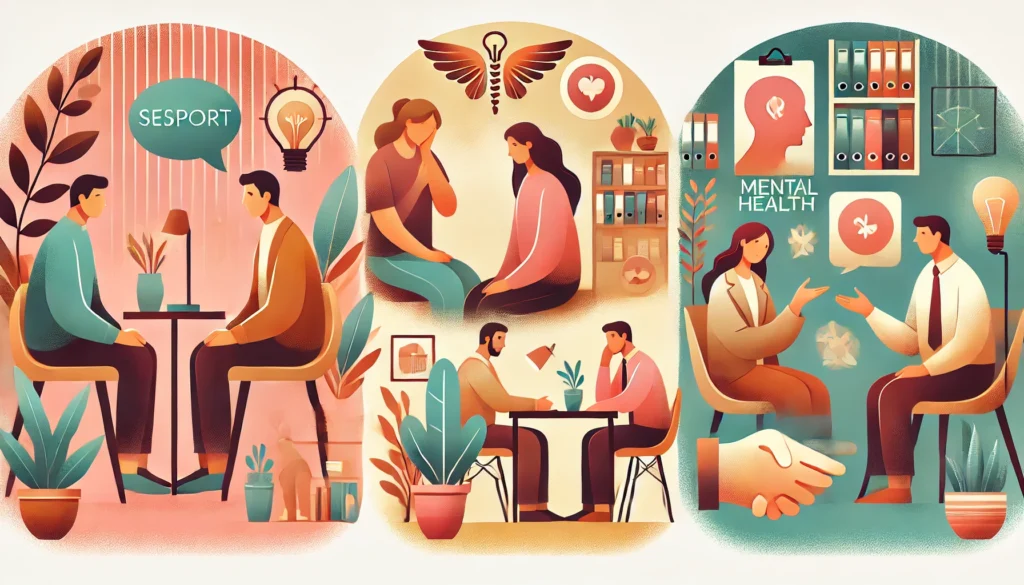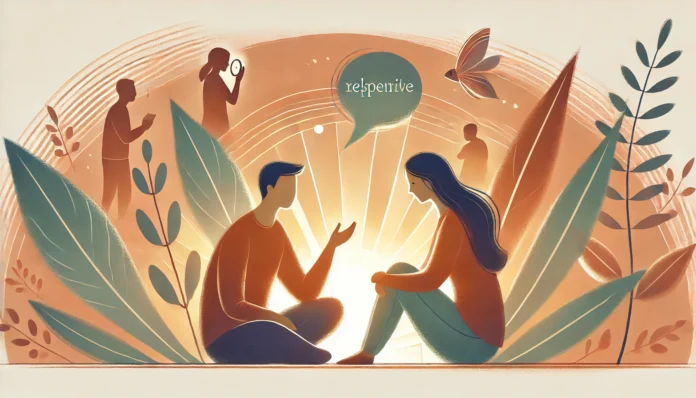When we think of psychology, it is not just communicating, but it is about the connection, understanding, and healing. First and foremost, regardless of whether you are a mental health counselor, a family caregiver, or going through your own mental health journey, communication skills in mental health are the most important of all. Moreover, there will be something on mental health and communication in this blog: why communication is the main building block of mental health, the ways to enhance your communicative competencies and the importance of reaching out for community support also.
Why Communication Skills Are Crucial in Mental Health
Communication creates trust, getting rid of biases, and thus, there happens the solving of problems among individuals who might otherwise hesitate to seek help, thus, creating a friendly climate for mental health talk.
Building Trust and Safety
The creation of a safe space is the most important thing of mental health care. Good communication, on the other hand, is the root of trust, which is the basis of every therapeutic relationship. When people feel they are listened to and their troubles are acknowledged, they tend to talk about them.
Reducing Stigma
Language that is unclear, unkind, or unempathetic at the very least maintains the stigma around mental health. The use of plain, sensitive words can punctuate the misconception and make an eloquent conversation about mental health issues.
Encouraging Help-Seeking Behavior
Avoiding the counselor because of this attitude is the common mistake that most people make. Developing high communication skills in counseling will help individuals ask for support despite their fears and uncertainties, whether it is a therapist, a close friend, or a support group.
Also Read: Signs of a Bad SIM Card: How to Spot and Fix the Problem
How to Improve Communication Skills for Mental Health
You can use active listening, empathetic language, and also watch for nonverbal cues to understand the mental health signals and build rapport with a person. These are essential communication skills in mental health that foster trust and create a supportive environment
Active Listening: The Art of Being Present
Active Listening is not just hearing what is being said, it is about the speaker and listener fully making connections. This means:
- Maintaining eye contact
- Nodding or using verbal cues like “I understand”
- Avoiding interruptions
- Reflecting back what you’ve heard to show understanding
To truly be listened to is such a wonderfully uplifting and healing experience.
Using Empathetic Language
Empathy is the capacity to understand and share the feelings of another person. In pressure, this stands for:
- Avoiding judgmental or dismissive language
- Using phrases like “That sounds really tough” or “I’m here for you”
- Acknowledging their emotions without trying to “fix” them

Nonverbal Communication: The Unspoken Connection
Were you cognizant that beyond 70% of the communication we encounter in our everyday lives is nonverbal? Body language, facial expressions, and the tone of voice are the major players in making the messages understood. For example:
- A warm smile may be a means to communicate empathy.
- Unfolded, such a posture will make you more accessible.
- A tranquil tone can be effective for making peace with conflicts.
Communication Skills in Different Mental Health Settings
In therapy, interpersonal relationships, or the workplace, impeccable communication skills in mental health support the establishment of nurturing and trustful settings and the promotion of positive mental health conditions.
In Therapy Sessions
Therapists show their mastery of communication skills, which are the fundamentals of mental health, by assisting their clients in the process of self-discovery leading to their healing. Reflective listening, open-ended questions, and validation are some of the techniques therapists can use to treat their patients.
In Personal Relationships
Standing by a dear one with mental health struggles is a weighty duty, nonetheless, skilful communication is the element that cements your connection. Show your loved one kindness by not rushing them to resolve their issues, being nonjudgmental, and not gearing the conversation towards your own problems.
In the Workplace
The issue of mental health is of central importance in the workplace now. Prospective managers and coworkers might initiate training sessions by:
- Exercising an open and understanding approach in the debate about mental health
- Providing the necessary resources and enabling employees to get help
- Developing empathy and sympathy

Ripple Effect of Good Communication
When we make communication skills a priority in mental health, it is advantageous to individual conversations only but also to the whole society. It creates a ripple effect that can:
- Strengthen relationships
- Promote mental health awareness
- Reduce feelings of isolation
- Empower individuals to seek help
Final Thoughts
Communication skills in mental health are more than just one of many skills—they are the bridge that brings us together. In the realm of mental health, they can be a powerful tool for healing, understanding, and growth. Whether you are a professional, a caregiver, or someone navigating your own mental health journey, practicing your communication skills in mental health can have a profound impact.
What are your thoughts on the role of communication in mental health? Share your experiences or tips in the comments below—we’d enjoy the good that is coming from you!
Also Read: Will the Police Unlock Your Car? Here’s What You Need to Know


